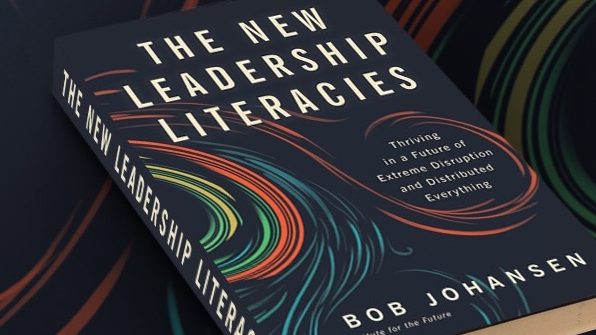Shape-Shifting Organizations
My family, friends, and co-workers are thankfully safe after Hurricane Irma, busy navigating through the aftermath. Meanwhile, I am pleased to share this guest blog post from futurist and leadership expert, Bob Johansen. I hope this excerpt encourages you to read his newest book.

Shape-Shifting Organizations will be Diverse Organizations
by Bob Johansen
When I first began my career in the 1970’s, I understood calls for diversity as calls for social equity, calls for social justice. Now, while there are still issues of social justice, the calls for diversity are more likely to be calls for innovation.
Scott Page’s book called The Difference, makes a strong case that diversity leads to better outcomes. Diversity, for Scott Page, includes diverse perspectives, diverse interpretations, diverse heuristics, and diverse predictive models. Scott Page is a professor of complex systems, political science, and economics at the University of Michigan and the Santa Fe Institute.
Shape-shifting organizations grow from the edges and it is at the edges where diversity and innovation thrive:
“Almost by definition, breakthroughs require serendipity. That serendipity arises from diverse preparedness. It derives from someone noticing and knowing how to interpret strange phenomena. Albert Einstein wrote that ‘the most beautiful thing we can experience is the mysterious. It is the source of all true art and science.’ In trying to come to grips with those mysteries, we apply our tools. The more tools we amass through training, refine by experience, and filter through our identities, the better.”
Shape-shifting organizations will create a radical increase in the potential for serendipity and exposure to the mysterious—if only we are on the lookout for it. When I began my career, diversity was all about equity. Now, diversity is about innovation. Equity issues still abound, but the big attraction for corporations is diversity to amplify innovation. Ten years ago, for example, most interesting tech signals came from the developed countries, now some of the most interesting signals I see are coming from Africa. Even though the infrastructure is not as fully developed the innovation spirit is very developed and amazingly creative things are happening with the development of applications using simple technology. What has happened is that the so call digital divide the way we used to talk about it (generally rich people had tech and poor people didn’t) that’s not as simple anymore. Now, no matter how poor you are you have some access to connectivity and if you look ten years ahead it is going to be even better connectivity. Corporations are rethinking the role of diversity. It is still true that rich people have access to better tech but poor people—even if they are hungry, homeless, and hopeless—have access to some tech their connectivity and power will increase over the next decade.
About Bob Johansen:
Bob Johansen is a distinguished fellow with the Institute for the Future in Silicon Valley. For more than 30 years, Bob has helped organizations around the world prepare for and shape the future, including corporations such as P&G, Walmart, McKinsey, United Rentals, and Syngenta, as well as major universities and nonprofits. The author or co-author of ten books, Bob is a frequent keynote speaker. His best-selling book Get There Early: Sensing the Future to Compete in the Present was selected as one of the top business books of 2007. His latest book is The New Leadership Literacies: Thriving in a Future of Extreme Disruption and Distributed Everything discusses five new leadership literacies—combinations of disciplines, practices, and worldviews—that will be needed to thrive in a VUCA world of increasing volatility, uncertainty, complexity, and ambiguity.


What People Are Saying